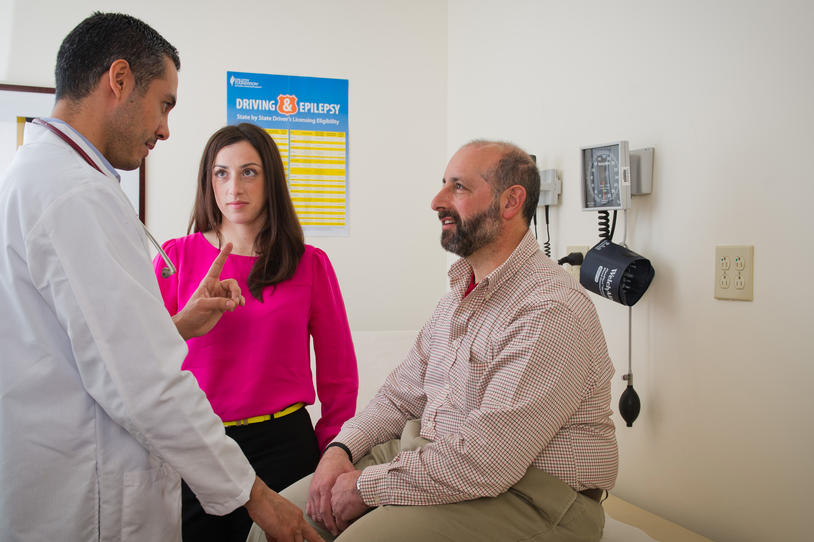
Michael J. Fox Foundation (MJFF) Associate Director of Research Programs Maurizio Facheris, MD, MSc, is providing updates from this year's American Academy of Neurology (AAN) Annual Meeting. In his second report from San Diego, Maurizio points to three more projects of interest to the PD community, while highlighting an award given to MJFF Scientific Advisory Board member Warren Olanow, MD.
1) Brad Boeve, MD, of the Mayo Clinic, has published an interesting paper examining the predictive value of REM Sleep Behavior Disorder (RBD) for synucleinopathies (neurodegenerative disorders, including PD, that are characterized by aggregates of the protein alpha-synuclein). According to Boeve’s study, those with RBD have a 50 percent probability of developing synucleinopathies within 15 years. For those that also have a reduced sense of smell, that percentage increased to 65 percent.
2) A study from lead author Angelo Antonini, MD, PhD of the Institute of Neurology in Venice, Italy showed further data on the levodopa/carbidopa intestinal gel (LCIG) on which we’ve previously reported in this space, confirming that the gel increases “on time” when compared with Sinemet IR, while also reducing dyskinesia. The study found that this effect was consistent regardless of age, gender, disease duration, baseline disease severity and medication use. Watch this episode of The Parkinson’s Minute to learn more about the gel, and stay tuned for updates as to when this gel might go to market in the United States. It’s already available in Europe under the brand name Duodopa.
3) Claudia Trenkwalder, MD, of University of Goettingen in Germany, presented results regarding a novel formulation of levodopa/carbidopa/entacapone (similar to the existing drug Stalevo) called ODM-101. The drug candidate has a higher concentration of carbidopa than does Stalevo, and the study showed higher effectiveness when compared to the existing drug in treating Parkinson’s patients with end-of-dose motor fluctuations (those periods of wearing off that many with PD experience). Many in attendance were skeptical that a higher concentration of carbidopa would lead to these results, so work needs to be done to prove that this drug is more effective than Stalevo.
4) Warren Olanow, MD, of Mount Sinai Hospital in New York, who will chair this year’s PD Therapeutics Conference in October, was awarded the 2013 Movement Disorders Research Award. His acceptance speech centered on pre-onset PD and the prion hypothesis, which suggests that the alpha-synuclein protein implicated in Parkinson’s might spread throughout the brain.